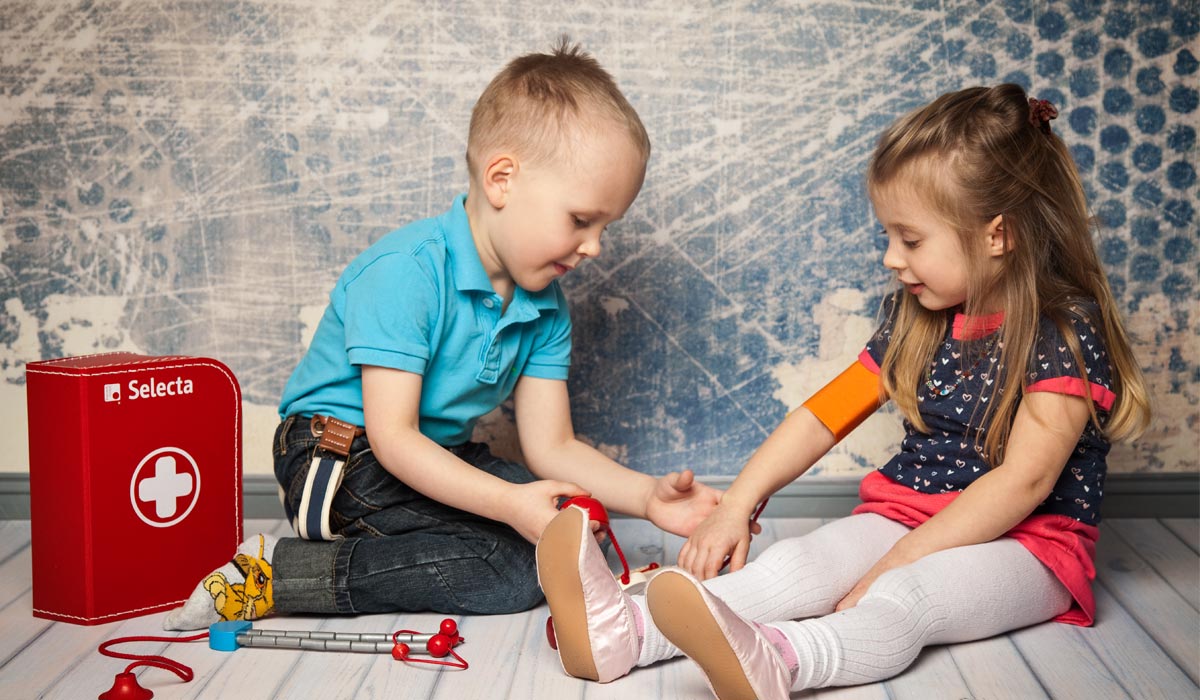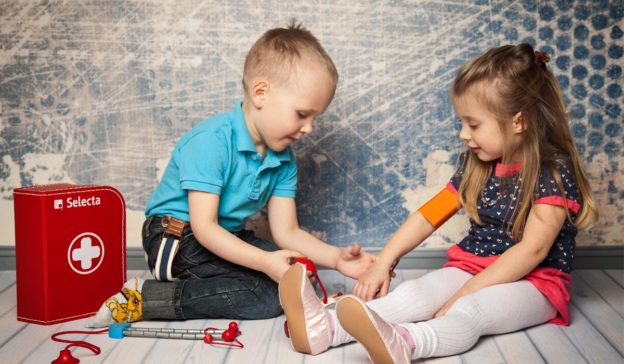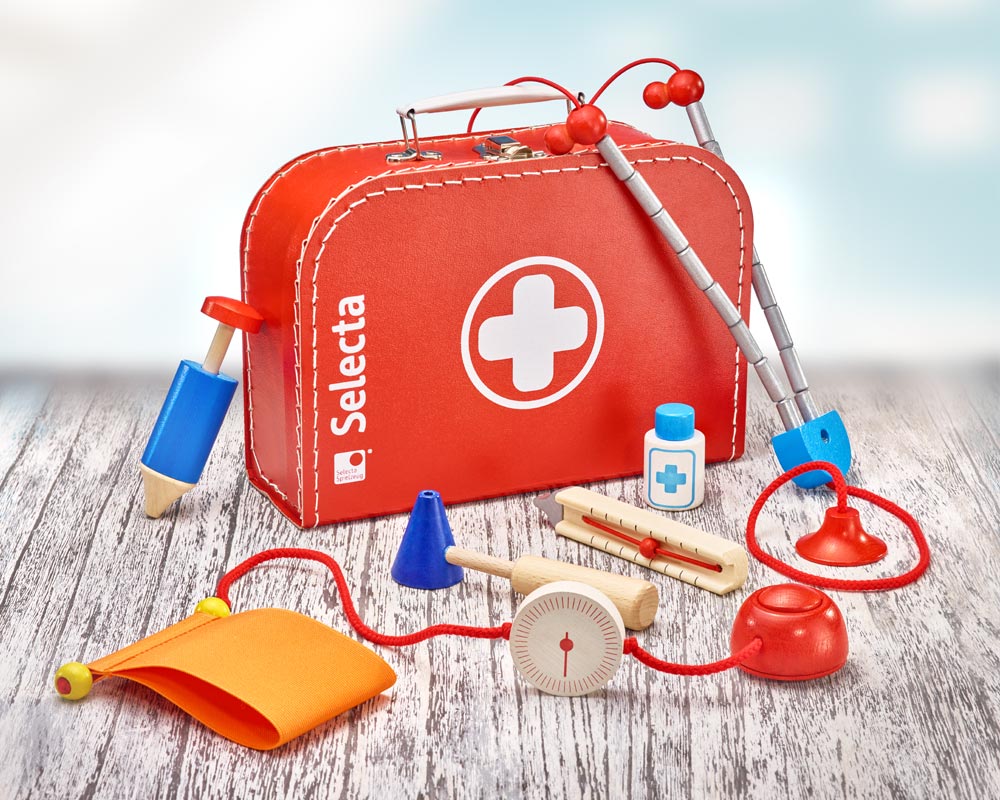There comes a time when parents realise that their baby’s way of playing has changed: they are no longer playing to grab things, to learn about the attributes of objects or to obtain a picture of the world. All of a sudden they are imitating everyday life: they feed a doll with a spoon, pick up a cloth and rub it over the table, stir a small saucepan. As they reach this stage, we notice that we really are role models when it comes to the little things in daily life—and see just how much our children absorb from us every day.

Why role play is so important for small children
In role play, both everyday and social activities are imitated: gestures, facial expressions and actions are copied, and the child deals with the world in a different way. This usually happens around the time of the first birthday, albeit earlier for some and later for others. Through a small-scale process of trial and error, they practise and learn—alone and, of course, with others. Mummy, Daddy, Granny and Grandpa have things cooked for them, have their hair cut, are allowed to sit at the dolls’ table and are served tea and coffee. Children have great fun re-enacting the daily routine together with other children and adults. The most important aspects of it can now be practised together as a game: the child hands over a cup, we thank them for it. ‘Please’, ‘thank you’ and ‘excuse me’ are learned from the examples we provide and not through constant prompting. Children can be taught values naturally and easily as they play.
Understanding everyday situations through play
Role playing is particularly important in situations that are not part of your daily routine: going to the doctor’s can be practised in advance or processed afterwards. Now your child is playing doctor and is allowed to look in your mouth and ear, to give you a jab in the arm, and you can discuss together what might hurt and when comfort is needed. Visits from workmen and other unusual situations can also be re-enacted. The same thing applies as before: your child learns about the world through play, including the social aspects of life and ways of behaving. For this reason, it is good to give children the space to re-enact to their hearts’ content the things they see as important—and when we do this, we also get an insight into their priorities.
This is an article by our guest writer Susanne Mierau. She is the mother of three children, a trained educationalist (specialising in infant pedagogics), a family counsellor and the editor of the online magazine geborgen-wachsen.de (‘Growing Up Safely’), as well as the author of guides on the topic of living with babies and small children.





